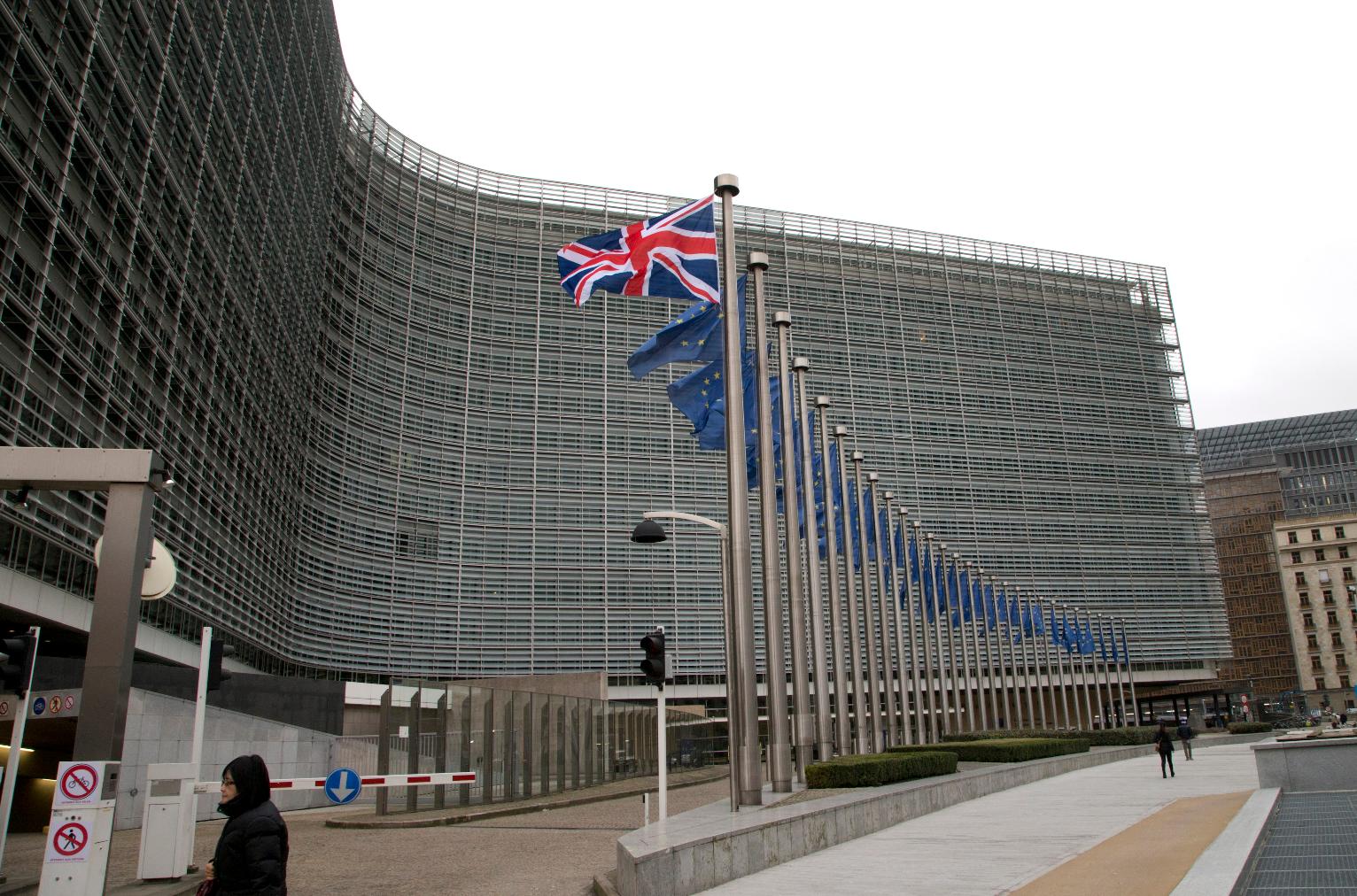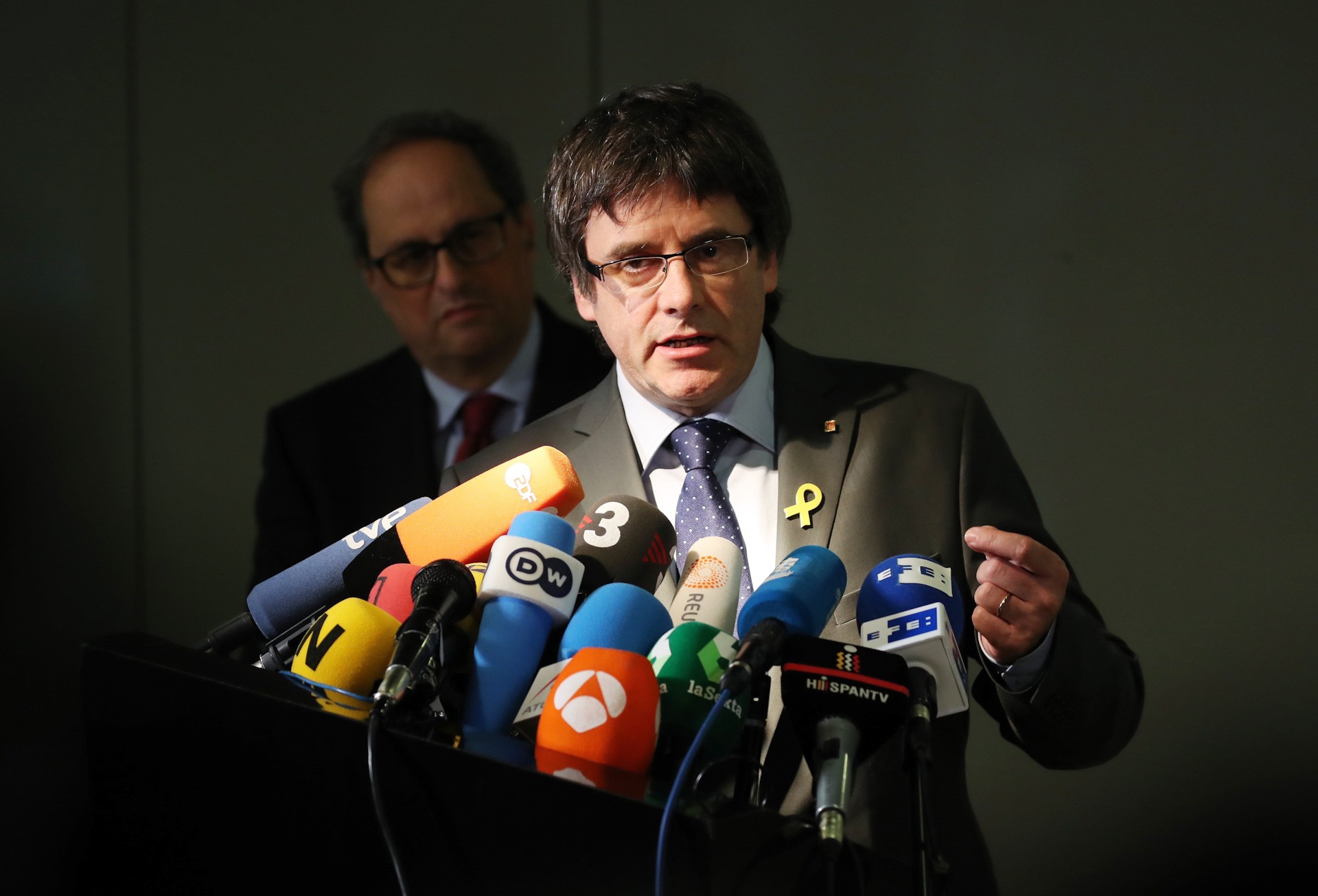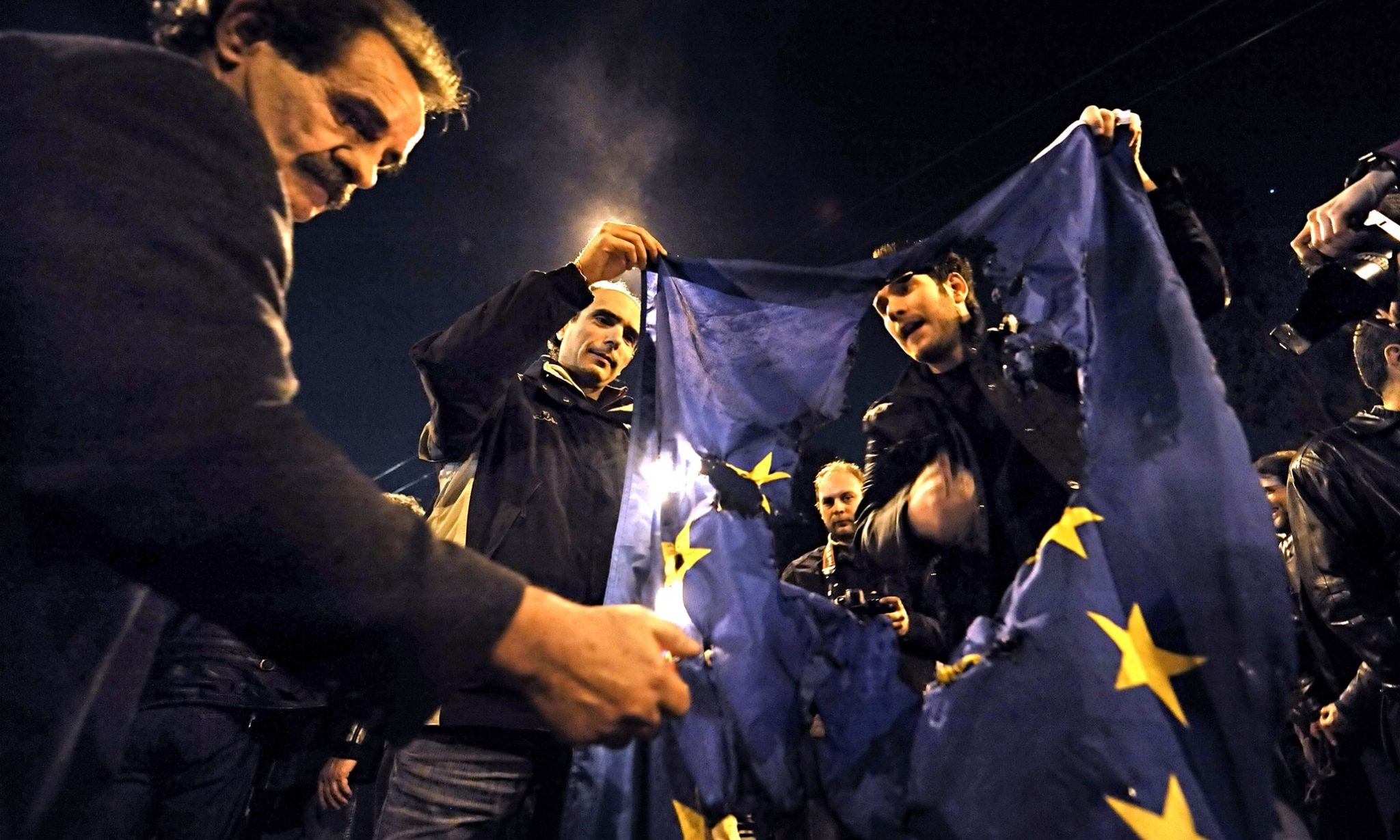
The English red cross of St George is out, flying on flags on homes and cars across England. Of course, it’s about football first of all. England is playing in the Euro 2016 championship in France alongside two other British nations, Wales and Northern Ireland, so an English fan can’t wave a Union Jack.
But it’s about more than that. The red crosses are most ubiquitous in the towns and villages of England that are also most passionate about voting Leave in the June 23 referendum on Britain’s EU membership. And if we didn’t get the message, last week in Marseille rioting English football fans clashed with police and sang, “Fuck off Europe, we’re all voting out.”
The strongest pull the Brexiteers exert over the British public is with the cry “Take Back Control.” The EU and Brussels are seen as part of a wave of globalization that an ordinary voter cannot control.
Vote Leave is an alliance of those who would take back control. It consists of three different kinds of British newspaper readers: those who read the Sun, the Daily Mail, and the Daily Telegraph. The Sun readers are working class, angry about stagnant wages and diminishing economic opportunities. Many of them are Labour Party supporters. They are enjoying having the chance to lift two fingers to their own party leadership, and to the whole British establishment. If the political class and the experts say vote Remain, all the more reason to vote Leave.
In its vote Leave editorial, the Sun roared, “The Treasury, Bank of England, the IMF and world leaders have all been wheeled out by Downing Street to add their grim warnings. Nonsense! Years ago the same politicians and economists issued apocalyptic predictions about our fate if we didn’t join the euro.”
The Daily Mail claims to be more respectable but is actually more toxic. It barely bothers not to appear xenophobic and shares with Nigel Farage’s Euroskeptic UK Independence Party (UKIP) an obsession with immigration. The Mail ran an article entitled “RIP this Britain” midway through the campaign, linking the referendum vote and a prediction—worthy of U.S. Republican presidential candidate Donald Trump—that “white Britons could be in the minority by the 2060s.”
The Mail positions itself as the common-sense scourge of the establishment and has spent much of the campaign taking aim at those who are warning about the dangers of Brexit from positions of authority. So it has called Mark Carney, governor of the Bank of England, the “Bank chief who can’t stop scaremongering,” accused the head of the IMF, Christine Lagarde, of “Brexit hysteria” (as well as the crime of being French), and answered the misgivings about the Remain vote of Simon Stevens, chief executive of the National Health Service, with “So instead of stoking up Project Fear, shouldn’t he concentrate on his day job?”
This roasting of the experts, aided and abetted by some former and current Conservative ministers, will do damage to Britain’s trust in its own and international institutions, regardless of the result of the referendum.
The third wing of the Leave campaign is represented by the anti-Cameron Tories of the Daily Telegraph, for whom the paper’s columnist and former Brussels correspondent Boris Johnson is a kind of patron saint. Its pages are full of the anxiety of older readers about the loss of British parliamentary sovereignty and nostalgia for a time when Britain was Great in the world and did not have to solve international problems hand in hand with Portugal and Slovakia. Charles Moore, a former editor of the Telegraph and biographer of Margaret Thatcher, lamented this week, “Everyone recognises Big Ben, but fewer and fewer people care what happens beneath its famous bongs, because it matters less and less.”
Fears of globalization are shared worldwide, of course. Here the twist is a particularly English one. After all, the Scottish, Northern Irish, and Welsh have all acquired different kinds of self-rule over the past two decades, while the English still have only the Britain-wide Westminster parliament. These ad hoc constitutional changes have lit a flame under the hitherto flickering phenomenon of English nationalism. Despite its name, UKIP is a party of English nationalism—indeed, Farage recently proposed that St George’s Day be made a national holiday.
There is a troubling scenario that on June 23 England could vote Leave but the three other nations in the UK—Northern Ireland, Scotland, and Wales—could narrowly swing the result for Remain. As Fintan O’Toole has pointed out in the Guardian,England is stumbling toward some kind of self-rule without understanding what it entails. The only modern analogy is the not very encouraging one of Russia’s accidental independence when the Soviet Union fell apart twenty-five years ago.
So the English question can’t be ignored now. That may mean giving more self-government to the English regions. It would also be right to change a voting system that was invented for two parties but has disenfranchised anyone who voted Green, Liberal Democrat, or UKIP last year. UKIP has a right to be angry that it received120 second-place finishes in the 2015 general election but had only one representative elected to parliament.
The UK referendum campaign has generated so much anger that Britain has felt like a different and more scary place for the last two months. It is tragic that it took the murder of the wonderful parliamentarian Jo Cox on June 16 to calm emotions.
The last practical suggestion is that of Cox, who understood the fears but was a passionate voice for Remain. Not long before being murdered, she wrote that even ifnet EU immigration is positive for the country, some communities do not feel that way. She suggested, “We need a clear formula to ensure that the taxes that migrants contribute go quickly to the areas where they are living, to make sure that local health services and schools get the funding they need when the population changes.”
This English revolt will only grow if the UK votes Leave. If the quieter voices of Remain prevail, it still needs tackling with good democratic politics.
- This article originally appeared on Carnegie Europe



